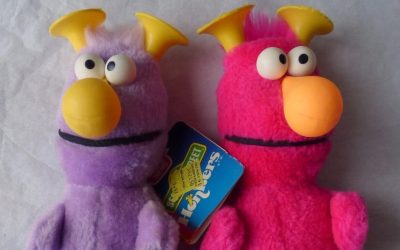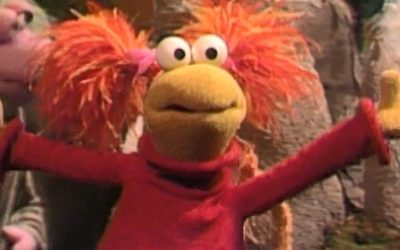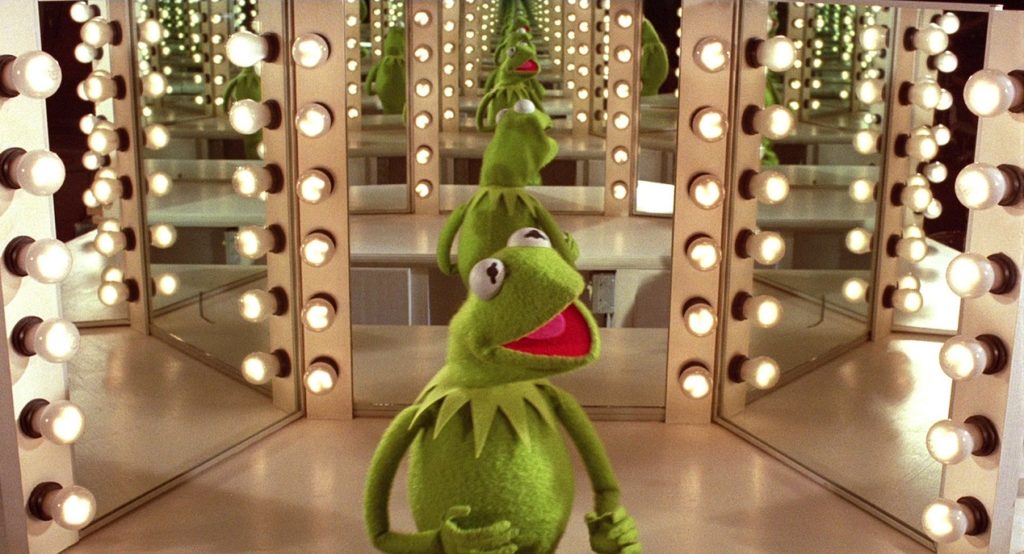This article is part of ToughPigs’ Pride Month celebration. Check out our other great articles as well as our Pride Month Fundraiser, where you can win prizes for supporting great causes.
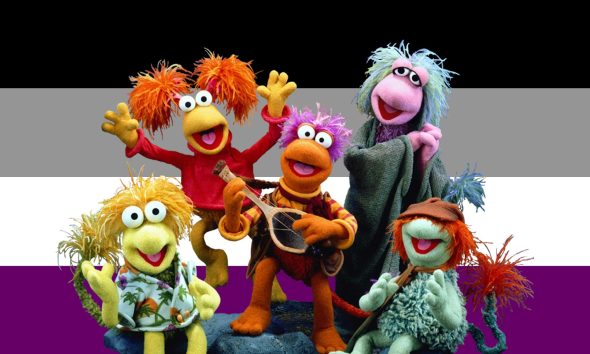
If we had a nickel for every asexual (ace) ToughPigs staff writer who really loved Fraggle Rock, we’d have two nickels. But is it really that weird that it happened twice? Or is there something innate in this classic Henson creation that appeals to people with this identity? Beth Cook and Katilyn Miller answer some questions to determine what it is about this show that is so appealing to the ace identity.
What does asexuality mean to you?
Beth Cook: Not to give you homework, dear reader, but I wrote about this a couple years ago. Which I apparently opened by referencing another ToughPigs article, specifically Danny Horn’s “Chapter 1: Toward an Unnecessary Theory of Muppet Sexuality,” which I still consider required reading.
Katilyn Miller: Sorry, everyone’s getting homework from me too. Just a quick visit to The Asexual Visibility and Education Network (AVEN) to read an overview of what asexuality is. Because even though I’m ace, I had never heard the term and so didn’t know how to describe myself until I was in my 30s. Even as education efforts expand, this identity isn’t as well-known as some.
So to me, asexuality was a revelation, a spyglass through which I could view my past and finally make sense of how I approached situations, relationships and media differently from my peers.
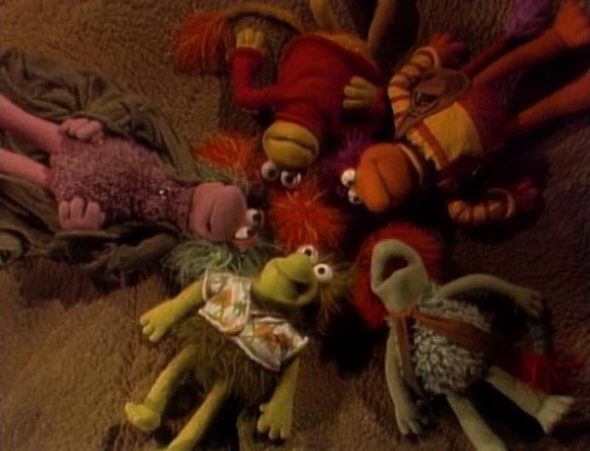
Does your asexuality affect what media you seek out and enjoy?
Beth: It didn’t used to affect my media choices, because there were no choices with explicit asexual representation. When it was merely implied, we got:
Negative stereotypes: Asexuals are often stereotyped as cold and heartless. There’s a reason for the existence of the No Love for the Wicked trope, where a person’s inability to experience romantic or sexual attraction is treated as a sign that they’re evil. Prudishness is another common stereotype, which ignores the fact that not all asexuals are repulsed by sex. Asexuals are also stereotyped as immature, due to the belief that “real grown-ups” must want or have sex: consider, for example, how often sex is used in media as a shorthand for a character becoming fully adult. Asexuals are also stereotyped as boring, due to the belief that sexuality is exciting and fun, so someone without one must live an uneventful life.
— TvTropes.org
Oh and don’t even get me started on the double-whammy of acephobia + ableism in the stereotype of disabled characters never being allowed to have normal sex lives.
The first explicitly asexual characters I ever saw were on an episode of House, M.D. Very aptly for its 2004-2012 timeframe, it took a “both sides” view of every social issue, and the conclusion would almost always come out on the side of the oppressive status quo. An asexual couple comes to Dr. House when the husband is ill, and House ends up “curing” the husband of his asexuality because he found a medical explanation for his lack of sex drive, and then the wife reveals that she’d been faking her own asexuality in order to be with him.
%^@($%&*@*&”!! (Takes a deep breath)
Fortunately, in recent years we’ve seen a small uptick in positive ace representation in media. So, special shout-outs and thank-yous to The Penumbra, Dimension 20, and Critical Role. (And Bojack Horseman, but I haven’t watched the series, just the clip of the ace character coming out.)
Katilyn: When I’m looking for entertaining media, I’m not usually searching out identity representation. If I hear about a movie, book or show that explicitly has an ace character, I will absolutely consume it. Doubly so if the storyline doesn’t actually revolve around this fact. I am a firm believer that our identities do not have to be central to a plot just because they aren’t “mainstream.” Yes, they should inform character decisions and reactions because those aspects of ourselves can’t be separated from how we interact with the world, but whether or not a person is ace shouldn’t be the whole point. Let people be people!
But as this media is vanishingly rare, the stories that I tend to enjoy are ones that give the characters a goal to work toward and then their personalities and circumstances affect how achieving that goal proceeds. Traditional romances or stories that contain a significant sexual element aren’t as appealing to me. Give me strong emotional attachments to others that have nothing to do with sexual chemistry and I am there. Ride or die best friends, found family, platonic soul mates, adventure buddies. Those are vital to garner my investment in the story.
For example, I enjoy Doctor Who. But I tend to enjoy classic Who a little more because the focus is on the monster-of-the-week or a historical problem that needs to be solved by the characters. When those characters are in peril, the desire for them to be safe is compelled by the friendships they’ve forged on their many adventures. New Who has many of these same storylines that I love as well. But it has also included a lot more romantic relationships to drive action and season-long plot arcs. This is undeniably compelling for so many viewers, but it’s not what attracts me.
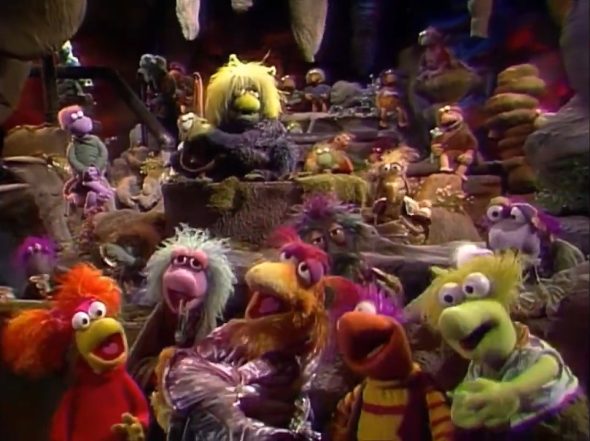
Why look at Fraggle Rock through a lens of asexuality?
Beth: To answer this question, we have to look at sexuality from its two separate components: biological and social. In biological terms, asexual means reproducing in some other way without the use of sex organs or the merging of gametes.
We do not know where baby Fraggles come from. We see baby Fraggles (or at least toddlers) out in everyday society, but we never see a new baby being born. The only hint we ever get is when the Storyteller starts telling of the story of Fedora Fraggle and says that Fedora was “hatched.” This seems at first to contradict the fact that no one but Wembley knew that eggs are “houses for babies.” However, it would explain both plot holes and be oh-so-Fraggly if Fraggles hatch out of the Rock itself.
In social terms, sexuality is a complex web of partner-bonding, recreation, social pressure, misinformation (thanks, American education system), coming-of-age rite of passage, stigma, labor, etc.
Instances of canonical romance in Fraggle Rock are few and far between. In “We Love You, Wembley,” Mokey has clearly absorbed these romantic ideas from somewhere in her culture in order to to project this onto Wembley’s newfound friendship with Lou. But the only other Fraggle conception of romance that we ever see is the Storyteller’s crush on Matt, and possibly a relationship between the Storyteller and Rupert in Back to the Rock, not sure what’s going on there. (I specify canonical romance because a trip into the Fraggle Rock channel on the ToughPigs Discord will show you that ships among the Fraggle Five are alive and well, and I support everyone’s right to ship whoever they want.) So on the whole, Fraggle society is much less concerned with romantic relationships than our own.
When we see that comforting ol’ nuclear family structure in a piece of media, it’s signaling “Don’t worry your little head about this, they’re Just Like You in this regard. This part of their society is Normal.” But anything else feels either alien (e.g. Nemo’s parents with hundreds of eggs) or radical (e.g. Stephen Universe—well, okay, I guess that one’s both radical and alien). For further reading (are we all taking notes, class?), check out The Way We Never Were: American Families and the Nostalgia Trap.
While the uptick in positive ace rep is still very recent, stories of found family are as ancient as the World’s Oldest Fraggle. While the Doozers and Gorgs seem to adhere to a more recognizable family structure, Fraggle families are incredibly unclear. Even the most basic of familial relationships—parent and child—is mentioned only once among Fraggles: “When I was just a baby, Pappy used to roam / Mama told me, ‘Sonny boy, your work won’t be at home.’” Even then, it’s in song lyrics, and it’s highly debatable whether or not Fraggle Rock song lyrics are to be considered canonical in terms of what they reveal or contradict about the world. Gobo’s family is the only one we see with these relationships: his Uncle Matt, Matt’s Uncle Gobo, and that’s it (and possibly Mama and Pappy). In the entirety of Fraggle Lore, that’s it. (Oh no… am I just inviting some young whippersnapper in the Discord to prove me wrong by quoting some picture book or comic or cartoon episode I’m less familiar with?)
Katilyn: There’s not a lot to add to Beth’s answer in terms of what we see on-screen in Fraggle Rock, so I’ll take this question in a different direction. I think because Fraggle society doesn’t explicitly depict some of their culture’s most expected aspects (family groups, economic systems, schooling, etc.) the audience is free to imagine how the Fraggles have filled in these spaces in order to achieve the world they inhabit. This was likely a conscious choice in order for the show to fit into as many cultures worldwide as possible.
Therefore, there’s no default here. Fraggles could learn how to read and write by traveling to the Echo Education Cave where these lessons are imparted to them through disembodied voices. (Perhaps someone in Outer Space left a TV tuned to Sesame Street.) Instead the Fraggles might sit at desks and learn from an elder, a situation that looks similar to what many children experience in the United States and Canada. But it doesn’t have to look like either of those. Just as their family structure and the way they form relationships doesn’t have to look like the family structure that the Gorgs and Doozers have.
This freedom from prescribed ways to be and behave allows viewers to imagine the ways that can lead to different, and hopefully positive outcomes. While many viewers will map their own experience onto the Fraggles, the fact that the Fraggles aren’t shown to have one explicit way that they form relationships allows for any number of maps. That could be sexual, asexual, demisexual, familial, platonic or something else entirely. In this way it invites engagement from viewers without starting from a place that immediately others.
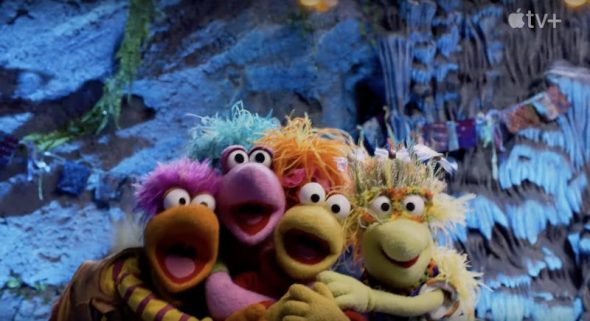
Wait a minute, aren’t all children’s shows asexual in nature?
Beth: Well, yes and no. Yes, in that you’re not going to get a children’s show that talks about sex explicitly. (But, as we’ve seen, you can find ways to talk about connected topics, like consent and gender identity—thank you, Back to the Rock!)
And at the same time, no. Finding a show that could be examined from an asexual framework both biologically and socially is very rare.
Katilyn: Exactly what Beth said. And just because they don’t talk about sex or relationships doesn’t mean that the hallmarks of sexual attraction aren’t included in some way. While it’s helpful to show healthy relationships among consenting adults in children’s media, usually the ones presented are one of two things. Either they’re Allosexual/allosexual-presenting* relationships, like a traditional parental unit of two adults who have produced children. Or the adults don’t have any close relationships at all. They’re only there in service of the storyline, to give the main child characters information or set them on their task. These depictions reinforce the idea that this is the way of things. But it doesn’t have to be. There’s room for more.
*Allosexual is an umbrella term for people who are not on the asexual spectrum, meaning they do experience sexual attraction.
How would our feelings change if a future episode introduced romantic relationships?
Beth: I’d honestly be fine with it if they did it in such a way that made it clear that it’s two individuals making a choice for themselves with zero societal pressure.
Katilyn: Super-agree. That layer of romantic expectation is so pervasive in western culture that we really deserve to see a non-judgmental presentation.
Exploring how different people approach different relationships, including romantic ones, is an important aspect of learning to socialize and be a part of this great big world. But I can easily see it becoming a dominant focus. I can also see it working in a similar way to “I’m Pogey”, where an episode is devoted to the topic. Then future episodes include that development and treat the change as another part of their ongoing lives. I know they would approach it with the same care as every other topic and that’s what really matters.

In classic Fraggle Rock, Doc and Sprocket have hinted-at crushes on Ms. Ardath and her Airedale, Marigold. Does this affect our experience of the show, or was it somehow different because it was in Outer Space and separate from the Fraggle storylines?
Beth: Yeah, totally different worlds. It feels like romantic relationships aren’t an expected part of Fraggle society the way they are in Silly Creature societies.
Katilyn: It did feel more natural there. I wouldn’t even question it if not for a deep dive like this. But I wish Doc’s friendship with Ned Shimmelfinney had been given as much focus considering the decision Doc makes for Ned come the end of the series.
Does the lack of romantic partnerships allow for more/more nuanced storytelling?
Beth: I think it allows for a different flavor of focus. (Is that a thing? It should be.) In any medium, you’re never lacking in representations of sexual and/or romantic relationships. But Fraggle Rock is about what it means to live in community, and just how complicated that can be. How do we deal with conflicting needs and expectations within our communities? How do we treat people on the margins? How do we interact with people whose lives look completely different to our own? How do we interact with people whose values look completely different to our own? How do we define who is included in the word “we”?
And yes, some shows can and do explore those same topics and have plenty of sexual and/or romantic relationships. But I’m glad Fraggle Rock doesn’t.
Katilyn: I think the lack of assumption of romantic relationships adds a freedom for the writers. They can explore interpersonal relationships and interactions without the pressure or expectation that romantic relationships must be present or that characters must necessarily feel unspoken sexual tension in small or intimate settings. So we can get better representation of the myriad feelings people can have when faced with danger or anxiety or a tricky problem.
Think of the episode “Marooned” with Boober and Red stuck together in a bleak situation. I can see a different show adding sexual tension because there are two people alone in a heightened anxiety situation and saying, “Well, of course. What else would they be feeling?” And the answer is a lot of other things! I’m so happy we get those other things.
Can asexuality end war?
Beth: I mean, what else are we gonna do with all that spare time that we’re not having sex, amiright? Might as well end war. That’s something I can solve by making more spreadsheets, yeah?
Katilyn: Well, it sure would’ve helped the Trojans. I can tell you now, I’m not launching a single one of my 10,000 ships just because someone’s face is aesthetically pleasing.
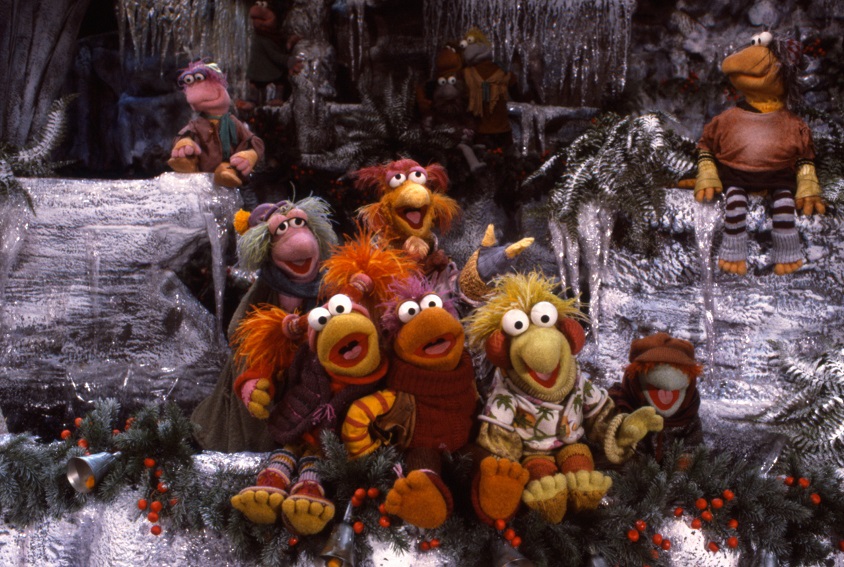
So just what is it about Fraggle Rock specifically that is such a draw to you?
Beth: I didn’t have any episodes on VHS as a kid, so I wasn’t able to watch it obsessively back then, and it faded into pleasantly fuzzy memories of colorful, playful creatures in a cool underground world. And I don’t think it’s a coincidence that I started rediscovering Fraggle Rock and at a time in my life when I was also figuring out my queerness. The absence of romantic relationships, the absence of nuclear families, the bizarre background critters, the beautifully moving songs, the inherent magic, the cozy underground setting feeling like a weighted blanket—all of it signaled to me that I was returning to a place that had always felt like home.
Another big part of it is how much of the original series holds up to this day. In my deep-dive rewatches for Fraggle Talk: Classic, and through the magic of conversation with Julia and Adam and our guests, I’ve been discovering that the vast majority of it is proving, over and over, to be just as wholesome, charming, absurd, and relevant as it ever was. Yes, there are certainly some moments of typical 80s TV cringe in the original series. But the reason I keep coming back to it is that those silly, colorful creatures still have a lot to teach us.
Katilyn: I love the interplay of the world and characters. The Fraggle Five are as much a distillation of personality characteristics as any other 80s kids’ TV show (the leader, the brash one, the thoughtful one, etc.). But unlike Teenage Mutant Ninja Turtles and the like, those personalities are allowed to grow and be explored. And that’s really the point. Sure, there are still a lot of cool plot points with danger and misunderstandings to solve, but the characters’ personalities shine the most when we get to see them in action, both as they are presented and as they must change in order to overcome an obstacle. And each story feels authentic to a character. There’s never a point where the writers have to pretend that Mokey is impatient for one episode because they needed to write a storyline that addressed the virtue of patience.
Also the music. I cannot overstate how good the music is. I know it’s something that we bring up any time Fraggle Rock is discussed, but it’s absolutely true. As I have become a parent and been exposed to countless children’s shows where the show runners, for reasons probably having to do with licensing opportunities, feel the need to include a song, those songs are uninspired and sermonizing. It would be much better if they’d just given those two minutes back to the story so it didn’t feel rushed. Yet Fraggle Rock somehow includes two to three songs per episode that enhance the story without rehashing it and still have enough time to tell a subtler, character-driven story.
Now add in Rock Clingers, Cave Clams, Inkspots, the Last of the Lily Creatures, Wander McMooch, Merggles, and a whole lot more, and you’ve got a show that presents the same opportunities we have in our lives to explore our environment, the creatures here, and our relationships to them. Each aspect of the world the Fraggles inhabit is worth exploring even if they at one time take it for granted. As the audience, we realize that it’s all worthy of wonder. And that’s how I prefer to go about the world. So I enjoy the Fraggle world as I do my own: free of any concerns about romantic relationships yet still full of love.
Click here to ace all the homework we gave you on the ToughPigs Discord!
by Beth Cook and Katilyn Miller

